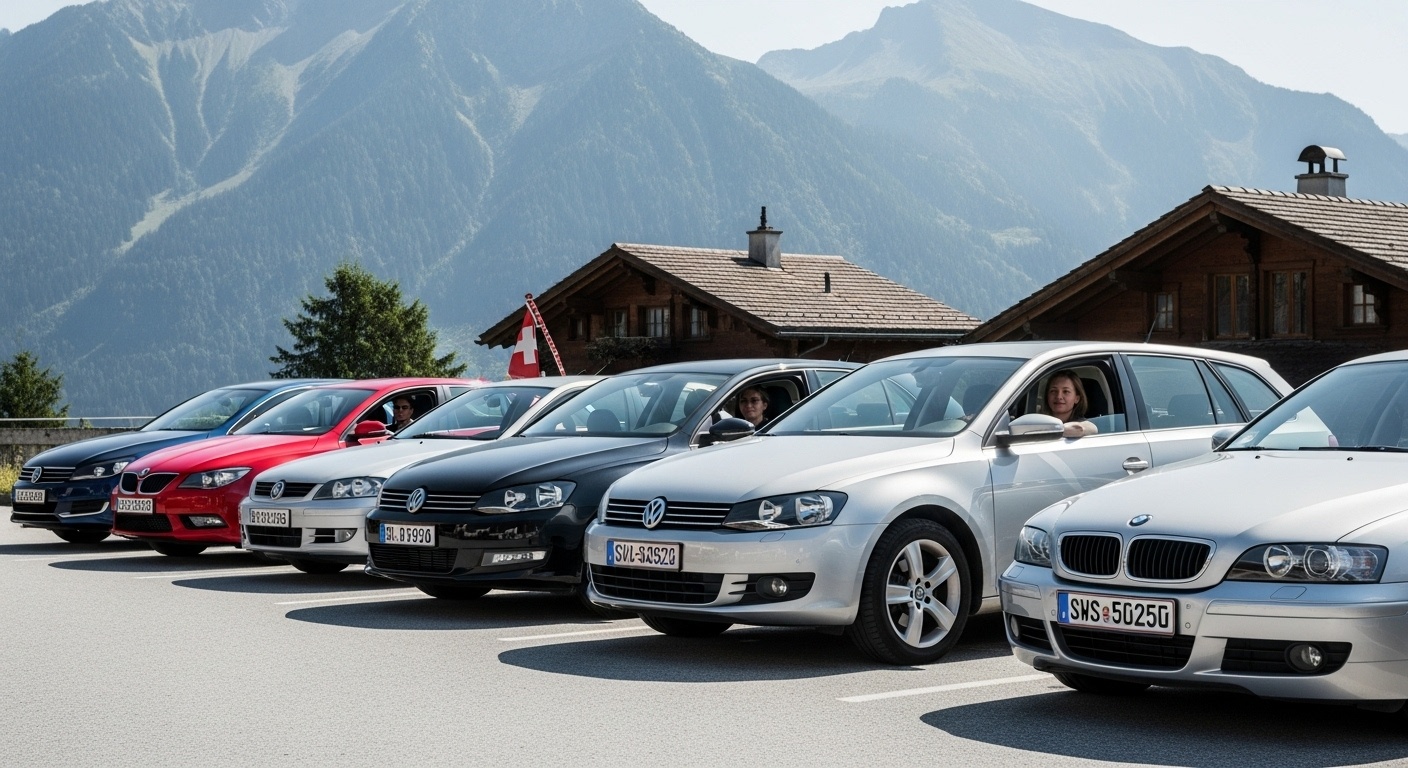Driving beyond the borders of Switzerland can be an exciting yet challenging experience for many Swiss drivers. The diversity of traffic rules in neighboring countries requires not only skilled handling of the steering wheel but also a deep understanding of various road traffic laws to avoid fines and unpleasant surprises. In this comprehensive guide, we delve into the essential knowledge needed for a worry-free driving experience in our neighboring countries.
Understanding Different Speed Limits
Switzerland is known for its strict speed limits, but these vary significantly in the surrounding countries as well. For instance, in Germany, there is no general speed limit on some sections of the highway, whereas in France, a limit of 130 km/h is enforced on highways. It is important to be aware of the specific speed restrictions of each country to be prepared for any potential fines.
Typical Speed Limits in Our Neighboring Countries
- Germany: 50 km/h in urban areas, 100 km/h outside urban areas, no general speed limit on highways
- France: 50 km/h in urban areas, 80-90 km/h outside urban areas, 130 km/h on highways
- Italy: 50 km/h in urban areas, 90 km/h outside urban areas, 130 km/h on highways
- Austria: 50 km/h in urban areas, 100 km/h outside urban areas, 130 km/h on highways
- Liechtenstein: Identical to Switzerland: 50 km/h in urban areas, 80 km/h outside urban areas, 120 km/h on highways
Traffic Signs: What Applies Where?
While many traffic signs within Europe are similar, there are subtle differences that can have significant implications. One example is the right-of-way sign, which is slightly different in some countries. Such nuances can lead to misunderstandings, especially if you do not drive in these countries regularly.
Notable Differences
In France, there is the “Zone de rencontre,” an area with pedestrian priority and a maximum speed of 20 km/h. In Italy, roundabouts are often equipped with signs that clearly indicate the right-of-way rules, while in Austria, additional signs frequently warn of upcoming speed limits.
Fines and Traffic Violations: What You Need to Know
The fines for traffic violations vary significantly between countries. A speeding violation in Germany can be relatively inexpensive, whereas in France and Italy, high fines can be imposed even for minor infractions. This requires meticulous knowledge of local regulations to avoid unpleasant surprises.
An Overview of Fines
In Germany, fines start at 10 EUR for minor offenses, while in France, fines for comparable offenses can quickly reach 45 EUR or more. Italy is known for its strict controls and high fines, where exceeding the speed limit by just 10 km/h can result in a fine of 40 EUR or more.
Practical Tips for Cross-Border Driving
Some basic tips can help make cross-border driving safer and more relaxed:
- Always carry the green insurance card to prove insurance coverage in case of accidents.
- Check the requirement to carry safety vests, spare bulb sets, and warning triangles.
- Inform yourself in advance about toll systems, as some countries, like Austria, require a vignette.
Specifically for Swiss Drivers: What You Should Consider
As a Swiss driver, there are some specific aspects to consider when traveling abroad. The use of winter tires in mountainous regions is often mandatory, and vehicle inspections in Switzerland are often stricter than in neighboring countries, meaning your vehicle may need to meet additional requirements.
Practical Experiences
A colleague from Zurich recently shared his experience of driving through Austria, where he was unprepared for the vignette requirement. A quick search and the purchase of a digital vignette online saved him from a hefty fine.
Conclusion
Driving beyond the borders of Switzerland requires careful preparation and a deep understanding of the different traffic rules and regulations. With thorough planning and consideration of the specific requirements of each country, you can enjoy the pleasures of cross-border travel without worries. Therefore, remember to do your homework before each trip and stay informed about the latest regulations to avoid unpleasant surprises.
